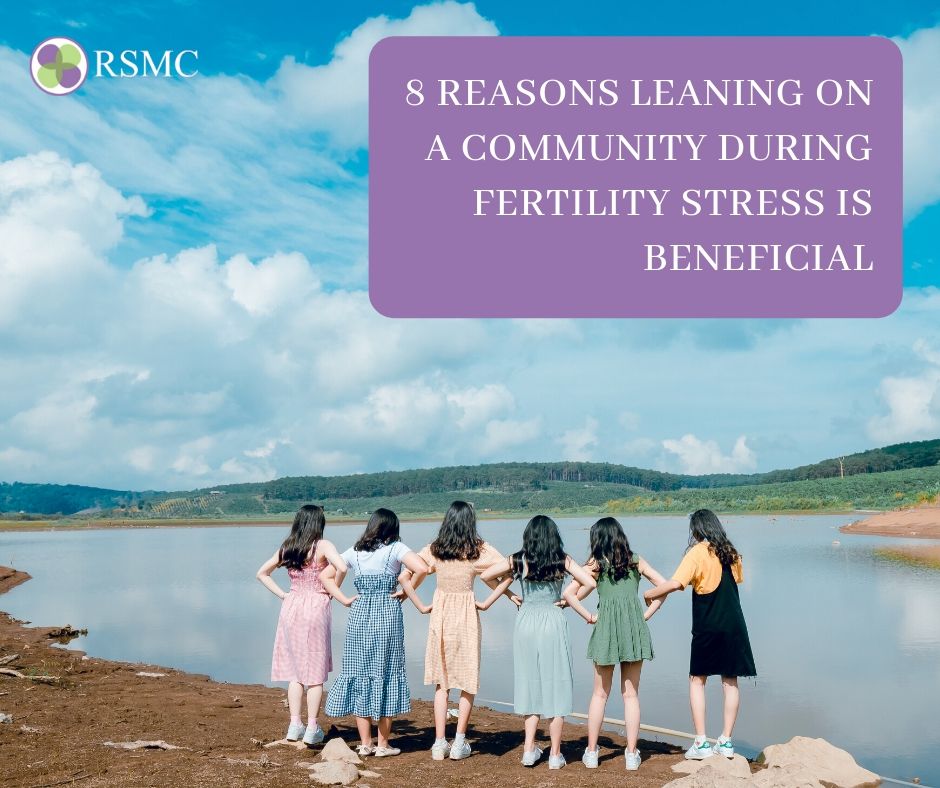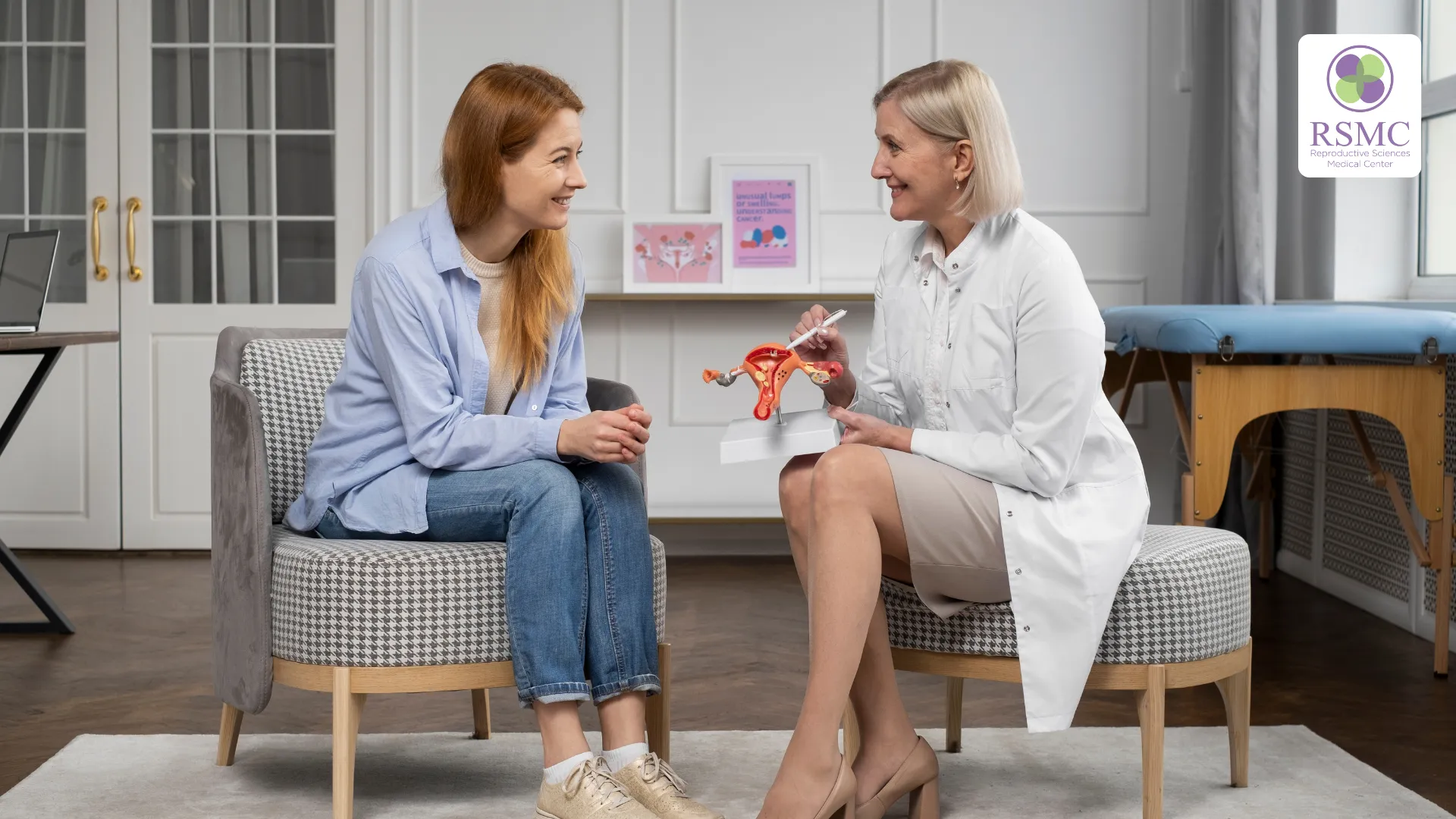We are often advised to look to our partners when going through fertility stress. But, the support they offer does not compare with what you can get from people who know what “it feels like”. Although they may try, partners cannot always understand what you are going through. This is why it’s important to have an infertility support group or a community of supportive people who do understand where it stings.
The journey to parenthood requires having a community of people you can talk to when in need of support and compassion. You may feel like braving the stress on your own. However, having a group of people, specifically infertility support groups or an IVF support group, to rely on when undergoing fertility stress helps.
If you are dealing with reproductive health or fertility stress, you need to remember that you are not alone. 10 percent of American women of reproductive ages find it difficult to become or stay pregnant. Also, an estimated 5 million women in the United States have polycystic ovary syndrome. Whereas, every 1 out of every 10 women has endometriosis. These statistics don’t include transgender Men & Women, non-binary, and any gender non-conforming people who also might have reproductive health issues3. A community can offer heartfelt, genuine empathy
and even lack the access to fertility counseling.
Although it may not seem so, there are tons of people who are also overwhelmed and stressed about their reproductive health. Finding a community that you can relate to, such as an infertility support group, often helps relieve some of the fertility stress. Here, people are able to understand one another and provide the support needed to navigate through fertility issues with actual empathy and understanding. And that can make all the difference.
1. Infertility support groups offer validation hearing
The stories of other people who are also struggling with stress and fertility give us a kind validation. This is especially true if their stories are similar to ours. It makes us feel like we are not the only ones going through this. However, it’s one thing to hear that you are not alone; it is another to feel less isolated by seeing other people’s vulnerability. This validation can make us feel hopeful, encouraged, or at the very least, comforted.
2. A community means less pressure on your partner
Partners seem to have different corporeal experiences during the fertility process. They often lack the understanding to provide any kind of fertility counseling. So, it is essential to have friends, family members, or a community, to share your feelings and challenges with. Speaking to other people about your fertility problems can help. Because, as mentioned earlier, your significant other may also be going through a lot in their life. Also, they may have limited knowledge about pregnancy and fertility. For this reason, fertility experts recommend that you talk to people who understand what you’re feeling and have similar concerns. Infertility support groups offer an excellent opportunity in this regard.
Fertility stress can affect relationships in a number of ways, morphing into resentment, communication problems, or emotional distance. Having other outlets to air your grievances and worries can open the way for a more fluid conversation with your partner.
3. A community can offer heartfelt, genuine empathy
A community of supportive people can evoke a strong feeling of connection and two-way empathy. This community will take away your worries and sadness and prevent you from feeling insecure, threatened, competitive, or inadequate. These harmful feelings are the exact opposite of what you will find in infertility or IVF support group.
4. The infertility support group removes the reproductive health-related stigma
We can help bust the cultural stigma around reproductive health issues by associating ourselves with people who know “what it feels like”. The times are changing, and usually, conversations about PCOS, endometriosis, fertility, and the stress of trying to conceive are becoming more relevant. However, a lot of work still has to be done before these conversations can take place in the open without the added weight of shame or judgment.
5. A community protects your psychological health
Talking to other people from the infertility support groups who are in your situation. They can help you maintain your psychological health. Research has indicated that the feeling of being alone can affect your physical and mental health. A study found that loneliness can elevate your stress and hormone levels. It can increase the risk of severe health issues, including dementia and cardiovascular disease.
6. A community provides inclusivity
A community of people dealing with the same stressors is important, especially for the LGBTQ community, who are forced to face reproductive health issues while still being excluded from the broader cultural narrative. They further often lack the fertility counseling access that others have.
7. Infertility support groups can provide new information
Your doctor should be the first person to know when you are considering an at-home remedy or additional fertility treatment. However, there is some information you can only receive from people who “have been there, done that”. Knowing that a lot of people are also battling fertility issues can help relieve your stress. Maybe you are just reading other people’s stories in infertility support groups about their journey through the IVF cycle or other fertility issues. But still, it’s comforting to know the experiences of others with fertility.
8. A community will never rush, judge, or shame you
You are less likely to be judged or shamed by a community of people who have once been in your shoes. Rather, they will make you feel understood, heard, and supported. It is essential to surround yourself with people who are honest, reflective, and good communicators, as you navigate your reproductive health issues.
If you are interested in learning more about stress and fertility or seek fertility counseling from our fertility doctors, please contact RSMC at (858) 436-7186 or schedule a consultation here.
Table of Contents
- 1. Infertility support groups offer validation hearing
- 2. A community means less pressure on your partner
- 3. A community can offer heartfelt, genuine empathy
- 4. The infertility support group removes the reproductive health-related stigma
- 5. A community protects your psychological health
- 6. A community provides inclusivity
- 7. Infertility support groups can provide new information
- 8. A community will never rush, judge, or shame you

























